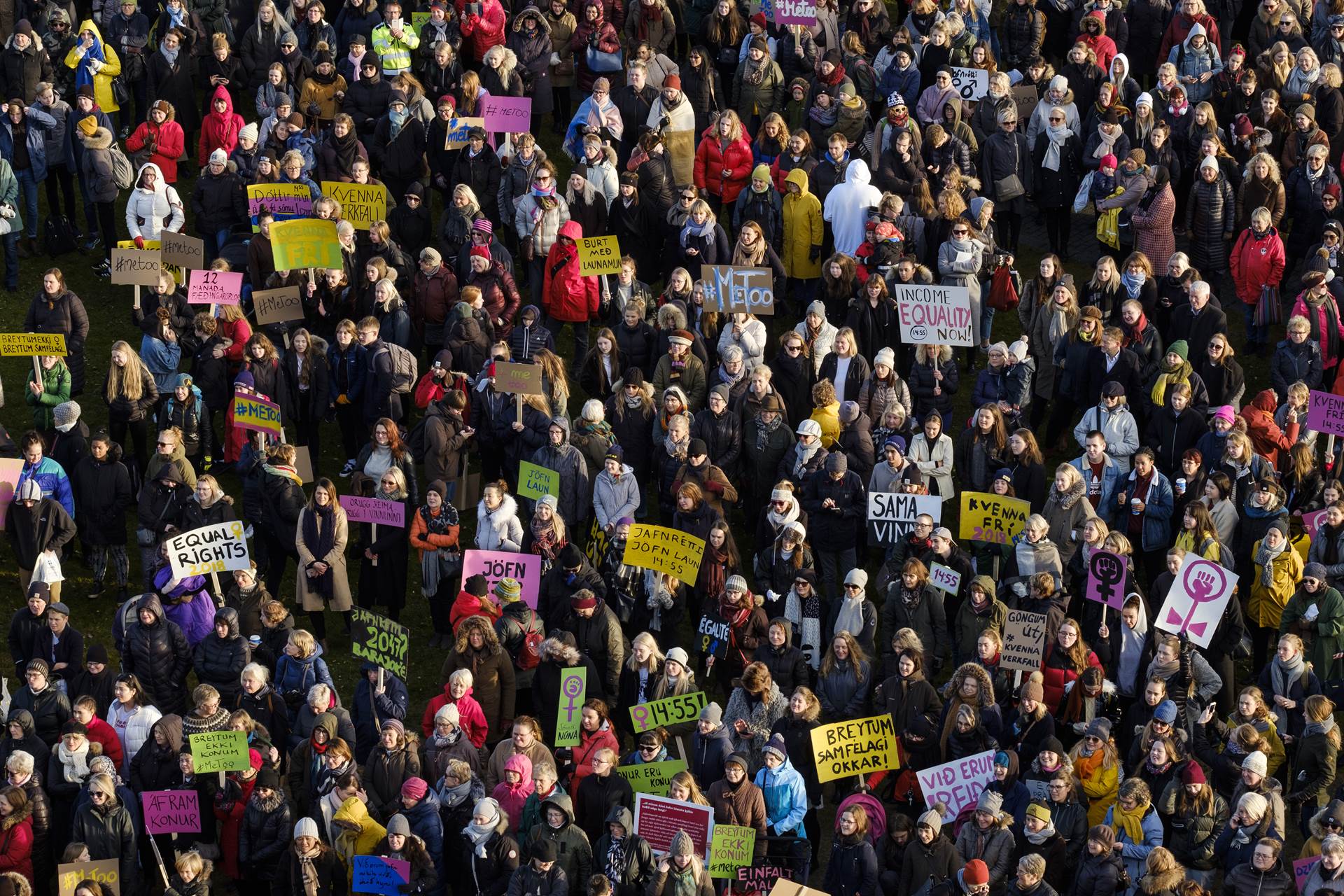Iceland remains the top country on the World Economic Forum’s gender gap index
Iceland remains the top country on the World Economic Forum’s gender gap index for the 11th year running. According to the report, gender parity will not be attained for another century if continued at the same pace.
This is the 14th time the World Economic Forum publishes the Global Gender Gap Report. It measures the extend of gender-based gaps in 153 countries among four key dimensions: Economic Participation and Opportunity; Educational Attainment; Health and Survival; and Political Empowerment.
The report gives countries a score where 100 is complete gender parity. Iceland remains at the top of the list for the 11th year running with 87.7 points, an improvement by 0.02 since last year. Norway, Finland and Sweden follow right behind and Nicaragua takes up 5th place. Pakistan, Iraq and Yemen are the countries with the biggest gender gap.
The Prime Minister of Iceland, Katrin Jakobsdottir said: ‘Iceland is proud to maintain as the frontrunner of the World Economic Forum Gender Gap index. This is an important acknowledgement of the progress made, which can to a great extent be attributed to the robust women’s movement, but also targeted social infrastructure investments. That includes universal, affordable childcare and well-funded parental leave for mothers and fathers, both of which have been instrumental for gender equality at work and at home. Yet, there are numerous remaining challenges to fully close the gender gap, as statistics on gender-based violence clearly demonstrate. Violence against women is both the cause and the consequence of wider gender inequalities. This is a government priority. Our goal is to achieve the targets set out in the UN Sustainable Development Goal number five on Gender equality, hopefully encouraging other countries to do the same and step up their efforts to ensure the human right of women and girls across the world.’
‘The report by the World Economic Forum shows that Iceland is at the forefront when it comes to gender equality, perhaps because equality is regarded as a basic human right and a prerequisite for advancing and developing our foreign policies. Gender equality serves as a guiding light in Iceland’s international development work, as the United Nations University Gender Equality Studies and Training Programme (UNU-GEST) is a manifestation of, which has been run in Iceland for several years,’ says Gudlaugur Thor Thordarson, Minister for Foreign Affairs who recently signed an agreement with Audrey Azoulay, General Secretary of UNESCO, about the International Centre for Capacity Development under which the UNU-GEST belongs.

